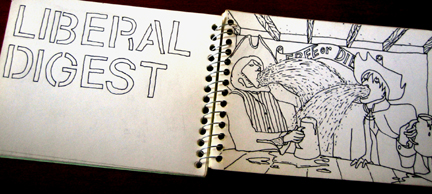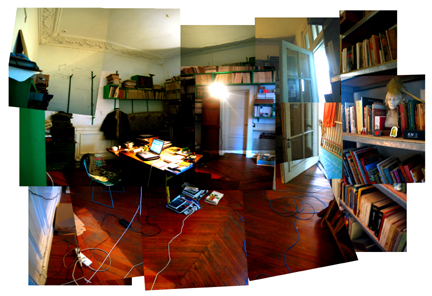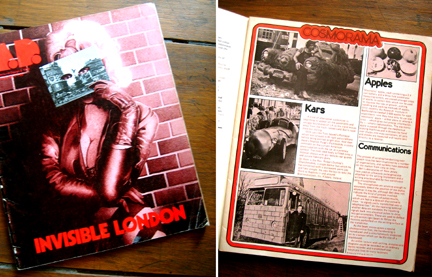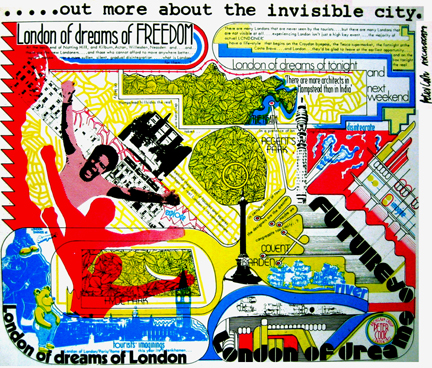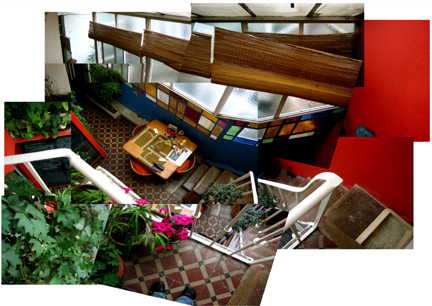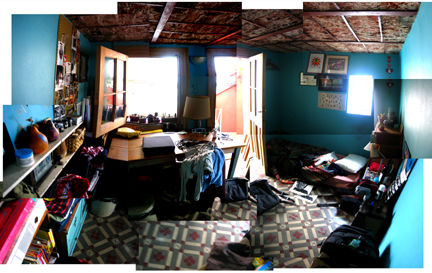Eco-perspectives from South America and other outlooks that differ from popular liberal opinion in North America
Tuesday, October 31, 2006I wasn’t sure what to say. A conversation with Mauricio and Pio about nauseating ‘eco pop-stars’ (Peter Gabriel and Chris Martin were pipped at the post by Thom Yorke who said recently that he would consider refusing to tour 'on environmental grounds') changed tack when they laughed that they weren’t worried about global warming. I probed further. It was quite simple, they weren’t. And they were somewhat scornful of those that are. ‘Are you?’ I stuttered insecurely….was it possible not to be?!
When ‘An Inconvenient Truth’ is playing in cinemas across the globe, when a report has just been released in the UK warning of the £3.68 trillion ‘cost’ of ‘ignoring’ climate change, when chief scientific advisers are calling it a bigger threat than terrorism, when we’re being told the ‘debate is over’…….after reading ‘The Revenge of Gaia’ earlier this year, as a subscriber to Resurgence magazine, with worldchanging.com as my homepage…..what options are there but to be concerned?
How to think now about my new Argentine mentors, who had just broken the boundaries of all Euro-American political correctness?
I thought about this in my last week in Buenos Aires and I had to think about my position as much as theirs. Slowly but surely I can feel the firm ground under my feet becoming slightly more marshmallow-like. ‘Global Warming’ may be a worldwide phenomenon with consequences for everyone, but it still looks different depending on where you’re imagining it from.
For example, in the USA, the discussion about ‘global warming’ among ‘those that believe’ is dominated by a kind of moral indignation. The context is a country dominated by oil interests, the world’s largest polluter with a bad track record of associated action. ‘Thinking’ North Americans are self-conscious about their problematic foreign policy, uncomfortable about their car-dependent cities, guilty about their affluence in an asymmetrical world and haunted by Exxon media campaigns aimed at discrediting climate science. To ‘not’ be concerned with global warming is almost unthinkable unless you are a right-wing, head-in-the-sand, Bush-lover (and even his traditional base, the evangelical Christians, are calling for radical changes in environmental policy).
But Mauricio and Pio are not of this latter cut. They are political agitators, self-described ‘humanists’, motivated less by money than by a greedy interest in a sprawling range of topics and are some of the most well-read people I’ve ever worked with. So their criticisms are rather interesting. Mauricio draws parallels between the media-driven fear of ‘global warming’ and the Cold War – a cultivated terror of the ‘abstract unknown’ and the convenience this opens up for self-serving political agendas and Orwellian government tendencies. He despises ‘radical chic’, a description which rather too closely fits a particular brand of Berkeley environmentalism. But most of all what I have come to better realise is that to be Argentine (at least the ones I met!) is to have a robust scepticism of moral certainty, authority, bureaucracy and consensus, a scepticism which has been fuelled by political contexts of military dictatorships and recent economic collapse.
While they might not deny the science of climate change, they argue against what they see as a political monopoly on the discussion of it - you are either ‘pro' global warming or you are in denial (a la George Bush ‘you are with us or you are against us’). I agree that it is quite common to hear it presented in morally simplistic terms ('we, the converted'). m7 resist this ‘fake agreement before the debate has started’, a kind of ‘we know what we need to accomplish, all we have to work out how to get there’ attitude....though they concede that what is interesting is that it’s global - that it can be talked about everywhere ‘is the start of something new.’ Mauricio added “the English spent most of the last century setting up the infrastructure that created it, and now they are horrified, and trying to do something about it.” He stuck his thumb into the air and smiled: “Global Warming….Cool Britannia!” It's true, global warming definitely offers feel-good rebranding opportunities for politicians....and is a conveniently abstract cause for those in search of personal salavation without too many strings attached [The drawing below is courtesy of the Corbalan sketchbook (that means Mauricio)...]
Interestingly, Ala Plastica, the environmental artists who I visited a number of times outside Buenos Aires did not entirely contradict those sentiments. Their opinion was that ‘climate change’ policies might receive public support in rich countries that are trying to address their emissions, but was less tenable as a political topic in poorer countries struggling with unstable economic situations and hungry mouths. Even if you frame them as interconnected problems it is simply a scale and abstraction of thinking that is viewed as a luxury. At the least, my Argentine encounter complicates the common perception (in my experience) that there are those that must be converted....and then the choir.
------------------------------------------------------------------------------------------
[But in case you still want to know just how guilty you should be feeling in hard, quantifiable information, you can rate yourself with this carbon-dioxide calculator. I'll let you know once I've calculated my sins.]
